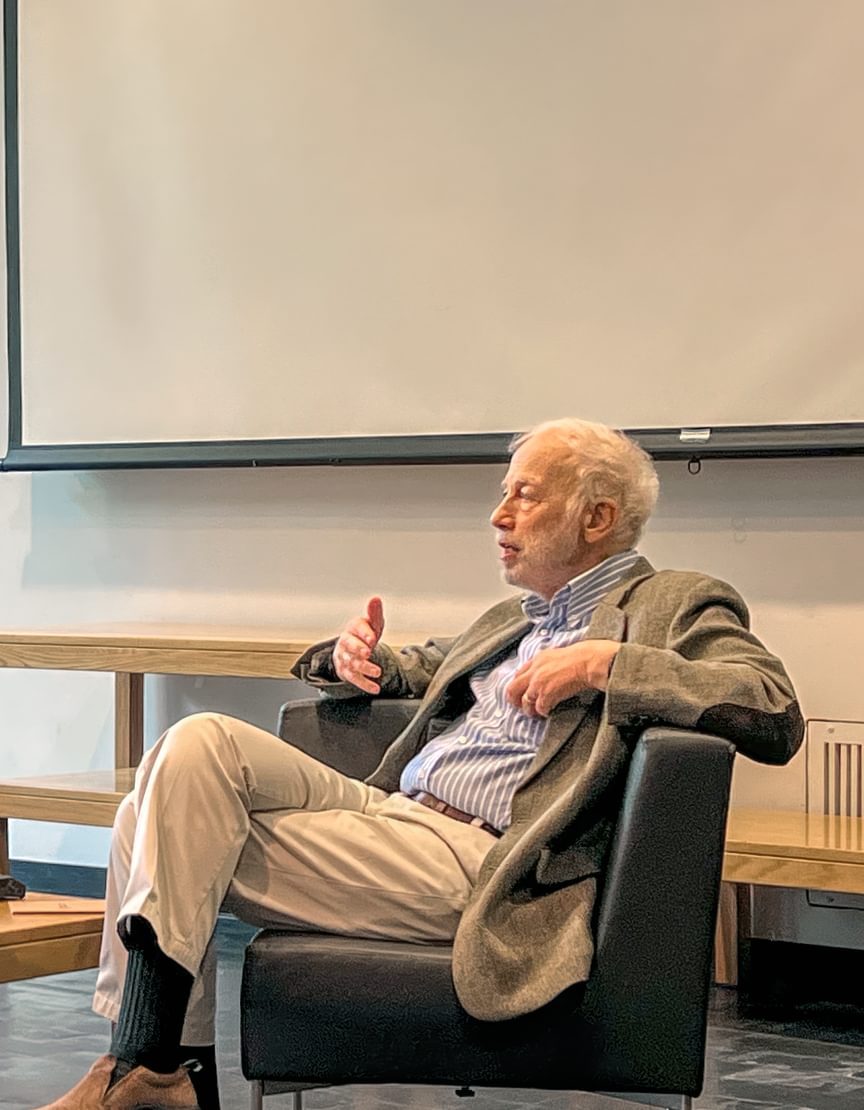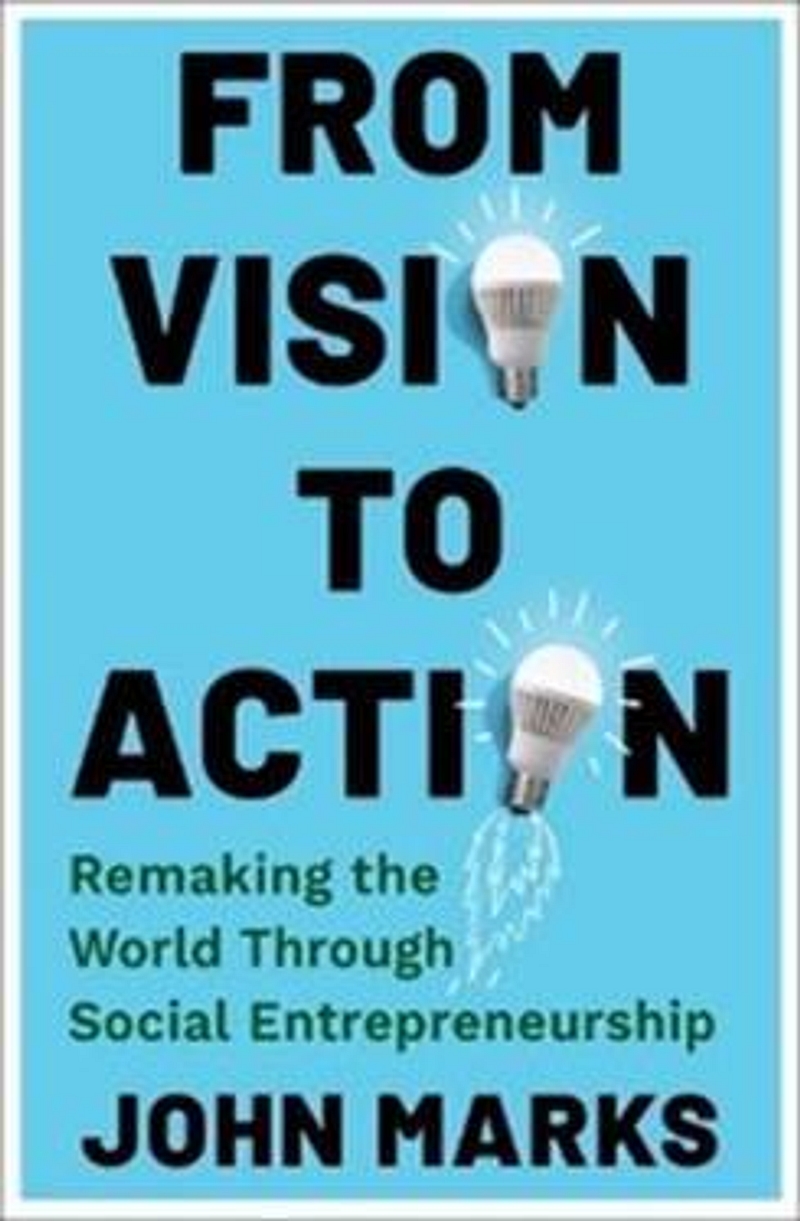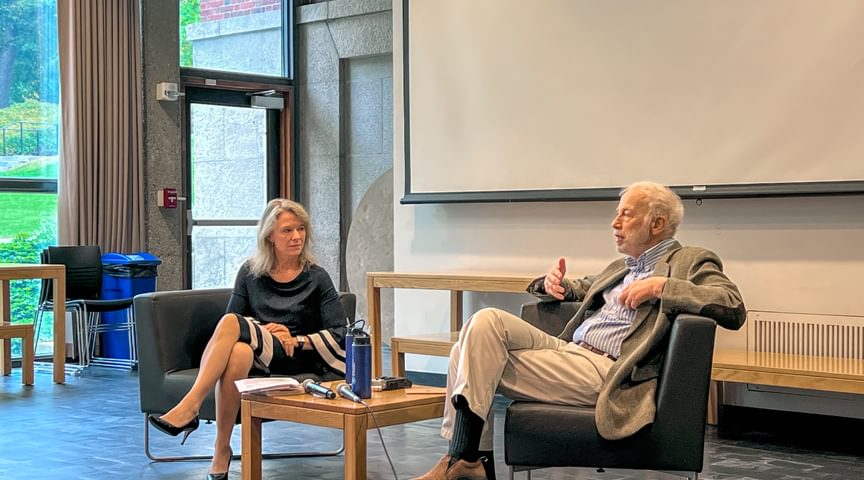
January 03, 2025
A lifetime of peacebuilding
John Marks '61 has spent decades addressing global conflictsby Nancy Hitchcock
Most people avoid conflict, even on a small scale. Not John Marks ’61, P’95. Now 81, Marks has spent decades addressing some of the world’s most critical global challenges through Search for Common Ground, the organization he founded to promote cooperation and resolve societal differences. He has worked tirelessly to build peace—a mission that began at Andover.
“My aim was and is to make the world a better place,” he states. “I want to bring peace to whole countries and regions. It’s non sibi writ large. When I was at Andover, the idea of non sibi was drilled into my head, so by the time I got to college I was clear that I wanted to go in that direction.”
And go he did. In 1982, Marks started Search for Common Ground. When he and his closest colleague and wife, Susan Collin Marks, stepped down from the organization’s leadership in 2014, Search had become the world’s largest nongovernmental organization involved in peacebuilding, with a staff of 600 and offices in 35 countries. In 2018, Search was nominated for the Nobel Peace Prize.

Marks has documented his experiences and strategies in a new book, From Vision to Action: Remaking the World Through Social Entrepreneurship(Columbia University Press). Part memoir, part guide, the book explains what it means to be a social entrepreneur and how readers can create positive change in society by adopting 11 principles, including “Start from Vision,” “Keep Showing Up,” and “Make Yesable Propositions.” Central to Marks’s philosophy is the martial art of Aikido, which, he explains, calls for accepting an opponent’s energy and then trying to shift that energy gradually. “You almost never can confront conflict directly,” he says. “You need to accept the situation as it is and then try to transform it by 10 or 20 degrees.”
Throughout his book, Marks details innovative approaches that he used to reduce adversarial behavior, prevent violence, and strengthen relationships. His organization’s work spans major global conflicts: U.S.-Soviet relations during the Cold War, peacemaking between Israelis and Palestinians, and efforts to prevent gender-based violence in the Democratic Republic of the Congo.
One of Search’s most effective tools, Marks notes, has been the media. Recognizing its power to reach millions, the organization created Common Ground Productions, which produced more than 400 episodes of dramatic TV in 20 countries. Marks refers to these as “soap opera for social change.” Common Ground Productions also created radio programs, documentaries, and reality TV shows that aimed to transform attitudes and behaviors. In Burundi, for instance, a country on the brink of mass slaughter in 1994, Search played a key role in countering hateful and inflammatory radio broadcasts that were fueling ethnic violence. “I believe our programs were major contributors to preventing genocide,” says Marks.
In another successful effort that Marks calls “wrestling diplomacy,” Search took members of America’s national wrestling team to Tehran to help improve U.S.-Iran relations after decades of hostility. “Since the Iranian revolution, no American sports team had visited Iran,” says Marks, “so when the wrestlers went, it became an international sensation.” At the event, American and Iranian wrestlers competed fiercely and then embraced, and the American flag was openly flown for the first time in decades. The goodwill generated was so significant that President Clinton later invited the U.S. wrestlers and Marks to the White House. According to presidential spokesperson Mike McCurry, the president’s goal was to send a message to the Iranians that he was interested in better relations.
Another of Marks’s guiding principles is “Keep Showing Up.” It’s an idea he attributes to a French class at Andover. “I read The Plague by Albert Camus,” he recalls, “and I still remember what he wrote about the necessity of not giving up.”
Despite current global unrest, Marks remains an optimist. “We are going through a very nasty phase,” he says. “Nevertheless, I believe that history is evolving in positive directions, but unfortunately, it’s not a straight-line progression. There are ups and downs, and we’re definitely in a down period. But you don’t start an organization called Search for Common Ground if you’re not an optimist.”





